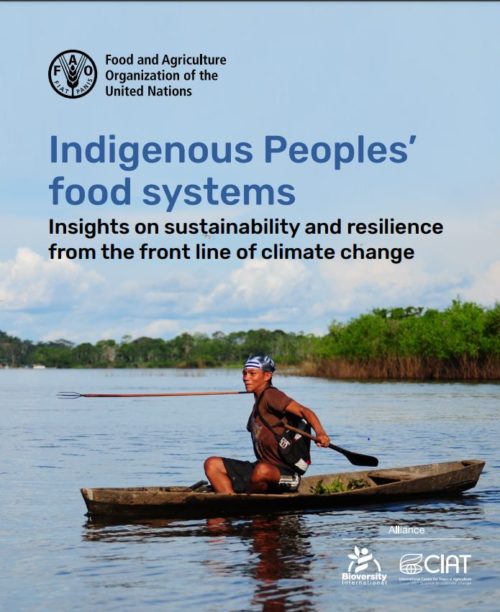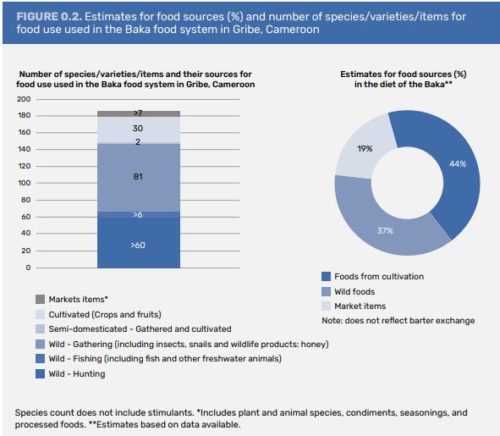Join Health Affairs for a virtual conversation between me and Angela Odoms-Young of Cornell University discussing the evolution of US food and nutrition policy, the current policy landscape, and thoughts on what lies ahead. It’s at 1:00 p.m. EDT. To join the Webinar, click here.
Food systems reports 1: Indigenous peoples
Food systems is the hot new term, referring as it does to everything that happens to a food from production to processing to consumption to waste. Reports about food systems constitute a deluge. This one deserves special mention. Others follow tomorrow.
FAO announces a new report on indigenous people’s food systems:
Nearly 500 million people in more than 90 countries self-identify as Indigenous Peoples, with unique traditional knowledge offering rich opportunities for food security and biosecurity preservation. Eight Indigenous Peoples’ food systems are examined in depth and revealed to be among the most sustainable in the world in terms of efficiency, no waste, seasonality and reciprocity.
The 420-page (!) report is here.

It is enormously detailed about foods, climate, geography, sustainability, resilience, and needs of the people in each community studied.
The eight groups studied:
- Forest-based Baka of South-eastern Cameroon
- Reindeer herding Inari Sámi of Nellin, Finland
- Fishing and gathering Khasi of Meghalaya, India
- Fishing and agroforestry Melanesians of Solomon Islands
- Pastoralist Kel Tamasheq of Aratène Mali
- Agro-pastoralist and gathering Bhotia and Anwal of Uttarakhand, India
- Fishing, chagra, and forest Tikuna, Cocama, and Yagua of Puerto Nariño, Colombia
- Milpa practicing Maya Ch’orti’ of Ciquimula, Guatemala
For each group, the report gives detailed information about food sources, production methods, sustainability, resiliency, problems, and issues.
And example from the Baka:

This is an astonishing resource and FAO deserves much praise for doing a deeply scholarly report like this.

